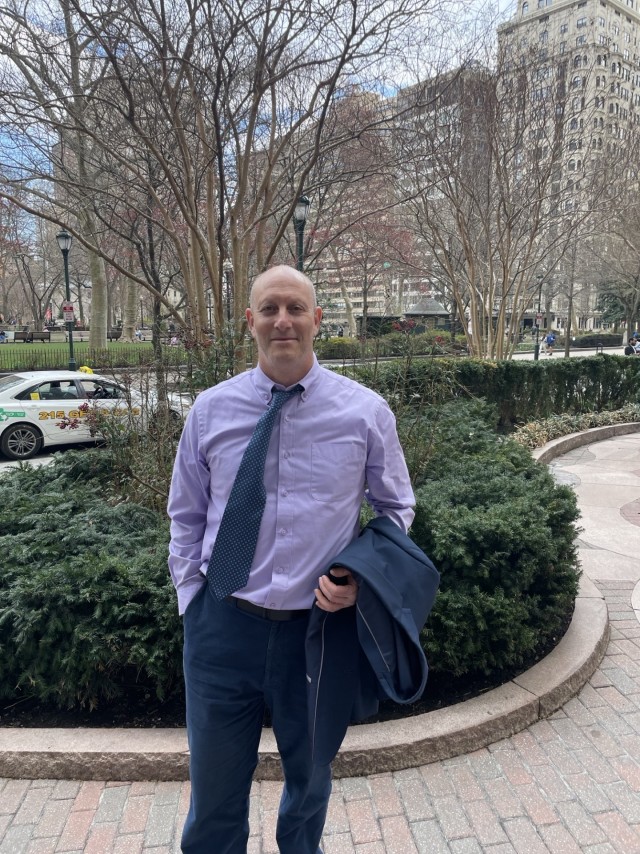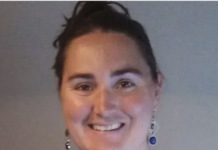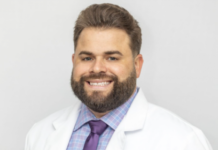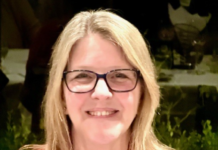Veteran hospitalist urges doctors and medical students to slow down, stay present, and protect their mental health
(Isstories Editorial):- Philadelphia, Pennsylvania Aug 3, 2025 (Issuewire.com) – With over two decades of experience in hospital medicine and medical education, Dr. Andre Posner is speaking out about an issue many in the profession quietly carry–burnout.
More on Isstories:
- Sparket Leverages Landmark Patent to Launch Sparket.AI
- Working Parents Are Choosing Business Ownership Over Jobs That Won’t Give Them Parental Leave
- Chesshir Stone – Rock Supply Expands Presence in Plano Following Acquisition of Contractors Stone Supply
- Burj2Burj 2026 Confirms Its Place as Dubai’s Iconic Half-Marathon
- Valentine’s Day Style Guide: How to Choose the Right Wig from Isee Hair
“Burnout is real,” says Dr. Posner. “But if you know what keeps you centered, you’ll last longer and do better work.”
Dr. Posner, currently a hospitalist and teaching attending at Penn Medicine, is using his platform to advocate for a shift in how physicians and trainees think about their mental health. Drawing on his own experiences, he emphasizes the need for grounding habits, such as meditation, time in nature, and even strategy games like chess.
“Medicine moves fast. You’re constantly reacting. But if you pause, take a breath, and look at the full picture–just like on a chessboard–you make better decisions,” he says.
A National Issue
Physician burnout continues to rise. According to a 2023 report by the American Medical Association, more than 63% of doctors reported feeling burned out, with emotional exhaustion and depersonalization cited as top symptoms. Among residents and early-career physicians, the numbers are even higher.
Dr. Posner believes the solution starts not with systemic overhauls, but with mindset shifts.
“Presence–being truly in the moment–is one of the most powerful tools we have,” he says. “I’ve learned that from patients, from quiet failures, and from stepping back.”
The Power of Stillness and Strategy
In a recent feature article, Dr. Andre Posner compared medical decision-making to chess. “Chess teaches pattern recognition, patience, and thinking a few moves ahead. That’s exactly what you need in medicine,” he explained.
It’s not just about calm under pressure–it’s about building internal habits that help physicians stay sharp and emotionally balanced.
“My advice to young doctors is always the same: don’t rush. Slow down and really observe. You’ll learn more and miss less,” he says.
Dr. Posner isn’t asking for applause or programs. He’s encouraging individuals–especially those in medicine–to find their own ways to reset.
“You don’t need an app or a subscription,” he says. “You need to figure out what restores you–and make it part of your week. That might be ten minutes of stillness, a walk outside, or a strategy game that clears your mind.”
He’s also asking educators and training programs to give space for this kind of self-care.
“If you want residents to learn, they need to think clearly. That won’t happen if they’re constantly overwhelmed.”
What You Can Do
Dr. Posner invites peers and trainees alike to take small steps that build long-term balance:
- Pause before reacting
- Practice daily mindfulness, even for five minutes
- Step outside or away from screens
- Reflect on mistakes without self-blame
- Find one activity that grounds you–and protect it
“Medicine isn’t about having all the answers,” he says. “It’s about staying curious. And you can’t be curious if your mind is too tired to ask questions.”
About Dr. Andre Posner
Dr. Andre Posner is a board-certified family physician and hospitalist based in Philadelphia. He has taught and practiced at Penn Medicine, Bryn Mawr Hospital, and Lower Bucks Hospital. He is also Medical Director at Greater Philadelphia Weight Loss and Family Medicine. Dr. Posner is widely recognized for his mentorship, teaching, and human-centered approach to care.
Read more from Dr. Andre Posner and about how you can get involved at https://www.drandreposner.com
This article was originally published by IssueWire. Read the original article here.





















